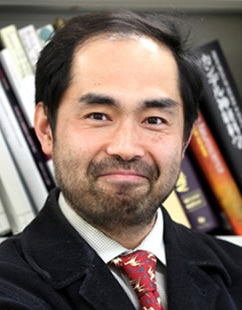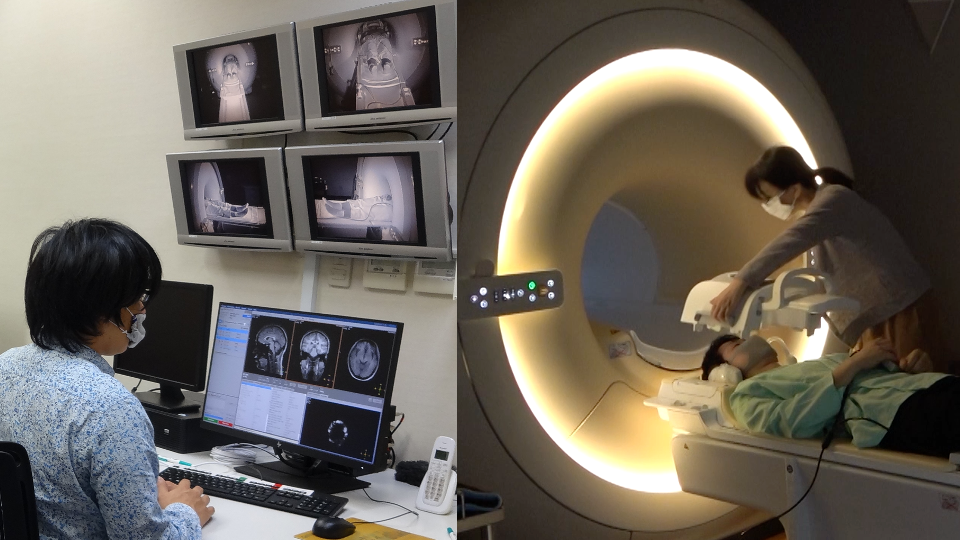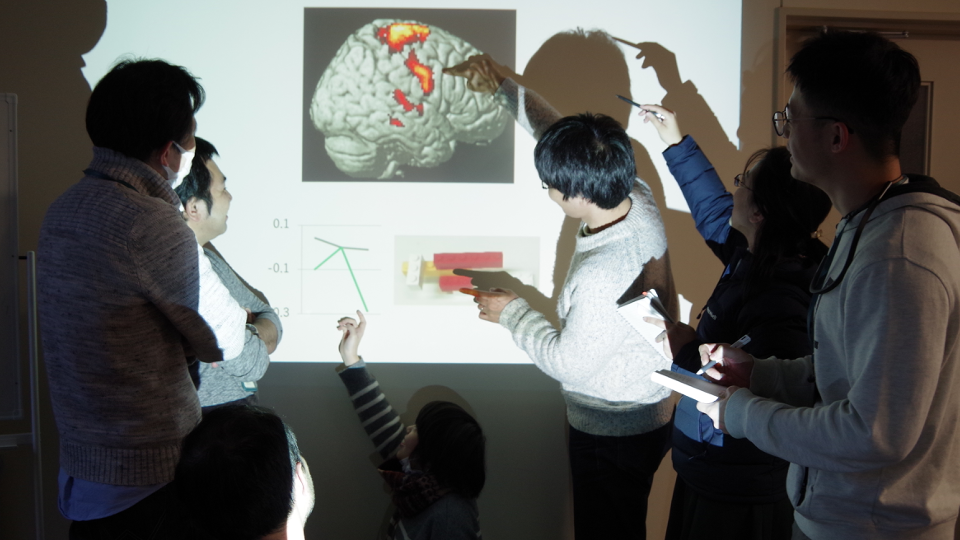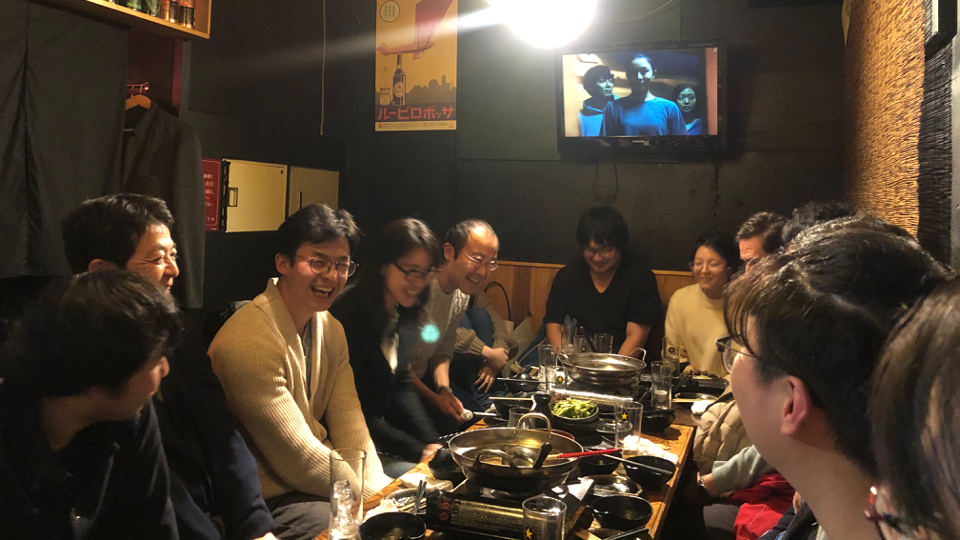医科学専攻
- Master's Courses
修士課程 - Doctoral Courses
博士課程
Human Brain Science(Institute of Development, Aging and Cancer)人間脳科学研究(加齢医学研究所)
STAFF
Professor
-
Sugiura, MotoakiProfessor. 杉浦 元亮 教授

Other Faculty / Staff
-
Jeong, Hyeonjeong
Professor. 鄭 嫣 教授 -
Okamoto, Yuko
Lect. 岡本 悠子 講師 -
Takemoto, Ayumi
Assistant Prof. 竹本 あゆみ 助教 -
Tanabe, Azumi
Assistant Prof. 田邊 亜澄 助教 -
Sakaki, Kohei
Assistant Prof. 榊 浩平 助教 -
Nakagawa, Seishu
Visiting Researcher. 中川 誠秀 非常勤講師
CONTACT
TEL:+81-22-717-8563
E-MAIL:hubs*grp.tohoku.ac.jp
(「*」を「@」に変換してください)
OUTLINE
How is the 'human' mind, behavior, and society realized in the brain? We are developing "human brain science" to unravel its secret. Using functional MRI, physiological and behavioral measurements, and social surveys, we are working to unravel these secrets. (1) How is the "self" created in the brain and how does it affect our perception, behavior, and adaptability? We are challenging various aspects such as physical, motor, social, and mental health. (2) How is the "value" of things and environments created? We explore the mysterious process by which the brain integrates various sensory inputs and evaluates value by referring to knowledge and memory. (3) What kind of brain processes exist in the background where words convey feelings, people are moved, and society is born from communication? We aim to understand human beings by clarifying these processes and apply them to education. (4) What kind of psychological and behavioral characteristics do people who overcome various adversities in life have? We aim to contribute to disaster prevention and general education by elucidating the basis of those traits. (5) Super-aging society, frequent disasters, and smart society. How will the changes in the environment and society change our lives and values? From the perspective of cognitive and brain science, we aim to make proposals on how to live a human-like life and how technology and society should be. We look forward to your participation.
人間らしい精神・行動、そして社会は、脳のどんな仕組みで実現されるのでしょう。機能的MRIと生理・行動計測、社会調査を駆使してその秘密の解明に取り組んでいます。「自己」は脳でどのように生まれ、我々の認識や行動、適応性にどう影響を及ぼすのでしょう。身体・運動・社会性・メンタルヘルスなど多様な側面に挑戦しています。
A物事や環境の「価値」はどのように生まれるのでしょう。脳が多様な感覚入力を統合し、知識・記憶を参照して価値評価する過程の不思議な実態に迫ります。
B言葉が気持を伝え、人を動かし、コミュニケーションから社会が生まれる背景にどんな脳過程があるのでしょう。その解明による人間理解と教育応用を目指します。
C人生の様々な逆境を乗り越えてゆく人は、どんな心理・行動的特徴を持っているのでしょうか。その脳基盤の解明で防災・一般教育への貢献を目指します。
D超高齢社会・災害の多発・スマート社会。環境や社会の変化は我々の生活や価値観をどう変えるのでしょうか。認知・脳科学の視点から、人間らしい生き方、技術や社会のあり方について提言を目指します。みなさまのご参加をお待ちしています。

An fMRI experiment
fMRI実験風景
Research discussions
研究議論風景
Research example (Matsuura et al., 2021)
研究結果の例(Matsuura et al., 2021)
Year-end party (before COVID pandemic)
忘年会(コロナ禍前)
ARTICLE
Hamamoto Y, et al. Reduced body-image disturbance by body-image interventions is associated with neural-response changes in visual and social processing regions: a preliminary study. Front Psychiatry, 15:1337776, 2024
URL:https://doi.org/10.3389/fpsyt.2024.1337776
Takubo M, et al. A risk-scrutinizing attitude is independent of risk-sensitive attitude and may hamper a proper protective response: a tsunami simulation experiment. J Disaster Res, 19(1):81-93, 2024
URL:https://doi.org/10.20965/jdr.2024.p0081
Liu C, et al. Effects of social interactions on the neural representation of emotional words in late bilinguals. Lang Cogn Neurosci, 39(3): 383–39, 2024
URL:https://doi.org/10.1080/23273798.2024.2307630
Tose K, et al. Systematic reduction of gray matter volume in anorexia nervosa, but relative enlargement with clinical symptoms in the prefrontal and posterior insular cortices: a multicenter neuroimaging study. Mol Psychiatry, 29(4): 891-901, 2024
URL:https://doi.org/10.1038/s41380-023-02378-4
Ding Y, et al. A multifactorial framework of psychobehavioral determinants of coping behaviors: an online survey at the early stage of the COVID-19 pandemic. Front Psychiatry, 14:1200473, 2023
URL:https://doi.org/10.3389/fpsyt.2023.1200473
